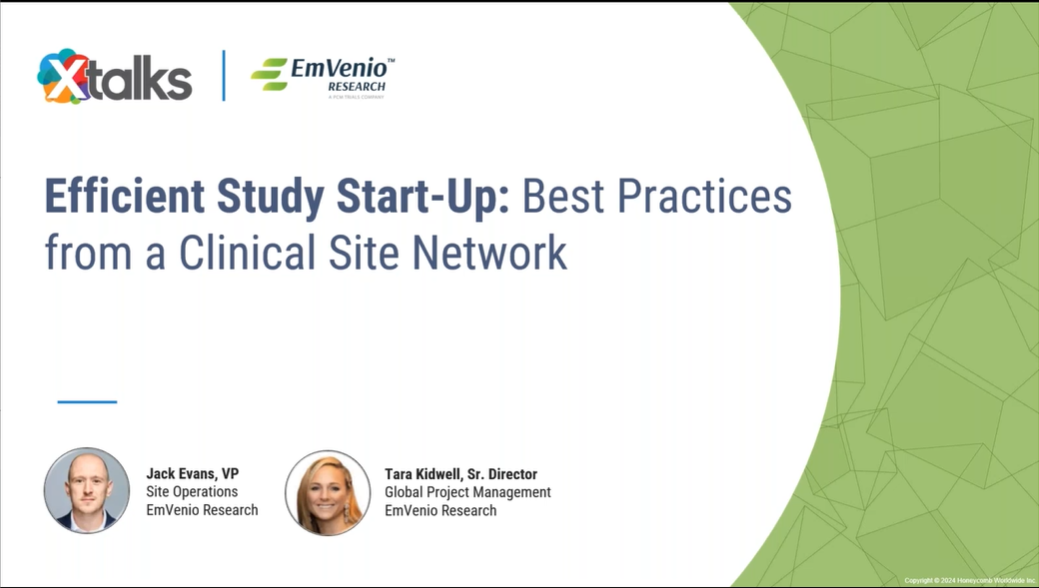The clinical research industry continues to evolve, with efficiency and precision taking center stage in study start-up processes. A recent webinar, Efficient Study Start-Up: Best Practices from a Clinical Site Network, presented by Xtalks, explored the intricacies of streamlining study start-up from the perspective of clinical site networks. Here’s a closer look at the key takeaways from this insightful session.
The Importance of Streamlined Study Start-Up
Study start-up is a critical phase in clinical research. A smooth and efficient start can set the tone for the entire study, ensuring timelines are met, budgets are adhered to, and the quality of data collection is upheld. However, this stage often involves navigating complex processes, including contract negotiations, regulatory approvals, and participant recruitment strategies.
The webinar highlighted how clinical site networks are uniquely positioned to tackle these challenges by leveraging their resources, expertise, and technology to optimize operations.
Key Insights from the Webinar
- Centralized Processes for Greater Efficiency
Clinical site networks often centralize tasks such as contract negotiations, IRB submissions, and regulatory documentation. This approach minimizes redundancies and accelerates approvals, ensuring studies can begin without unnecessary delays. - Technology as an Enabler
Leveraging technology, such as electronic Trial Master Files (eTMFs) and automated workflows, was emphasized as a game-changer. These tools enhance communication between sponsors, CROs, and sites, while also reducing administrative burden. - Data-Driven Site Selection
Site networks have access to vast data repositories that can inform site selection. By analyzing historical performance metrics and population demographics, they can match studies to the most appropriate locations, ensuring faster enrollment and better participant diversity. - Building Strong Sponsor Relationships
A collaborative approach between sponsors and sites was underlined as critical. Early engagement and transparent communication help align expectations, mitigate risks, and foster a shared commitment to the study’s success. - Training and Staff Development
The need for continuous training was another focal point. Well-trained staff who understand protocol nuances and regulatory requirements are instrumental in avoiding common pitfalls during study start-up.
Why These Practices Matter
As clinical trials grow more complex, the need for robust and efficient start-up strategies becomes paramount. Implementing these best practices not only accelerates timelines but also contributes to the overarching goal of delivering innovative therapies to patients faster.
Final Thoughts
The Efficient Study Start-Up webinar shed light on how clinical site networks can play a pivotal role in overcoming traditional barriers to study initiation. By embracing technology, fostering collaboration, and streamlining processes, these networks are helping sponsors and CROs bring clinical research to the forefront of innovation.
Whether you’re a sponsor, CRO, or site looking to refine your start-up processes, this webinar serves as a valuable resource for actionable insights. Contact EmVenio with any questions and watch the full webinar here:

